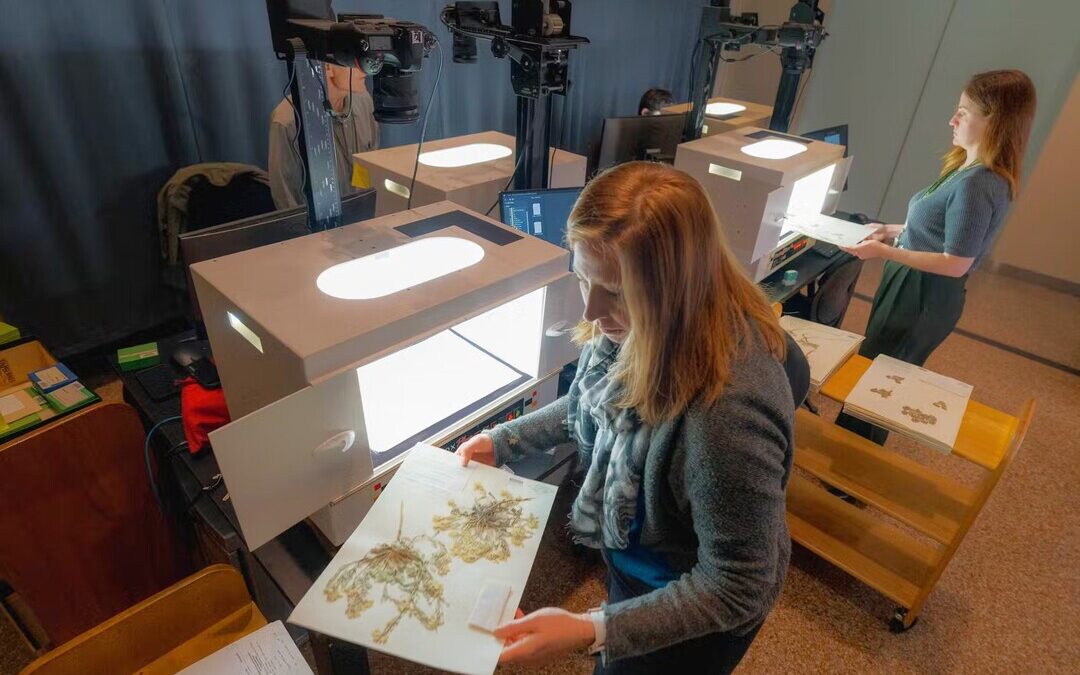Bezos Earth Fund Awards $30M to Advance AI for Climate and Nature
The Bezos Earth Fund backs AI innovations to protect plant species, boost biodiversity and accelerate global climate action.
The Bezos Earth Fund on Thursday announced a $30 million commitment to accelerate the use of artificial intelligence to protect the planet, backing 15 global teams developing AI-based tools for biodiversity, climate and food security.
The new funding marks Phase II of the AI for Climate and Nature Grand Challenge, launched in 2024 to encourage breakthrough environmental applications of AI. Each team will receive up to $2 million to test and scale their solutions over the next several years.
AI for the Planet’s Toughest Problems
The selected projects span five continents, addressing challenges such as deforestation, coral reef degradation and food waste. They include an AI-powered coral reef monitoring network in the Pacific and a weather forecasting toolkit designed for African farmers.
Lauren Sánchez Bezos, vice chair of the Bezos Earth Fund, said AI could be a “powerful ally” for environmental progress.
“These innovators, using AI, are showing us new possibilities by reimagining how we grow food, protect wildlife, and power our planet,” she said.
Building on Early Success
The initiative builds on the first phase announced in May, which funded early-stage ideas that demonstrated AI’s potential to support climate action. This second round moves beyond concept testing to practical deployment, emphasizing measurable environmental outcomes.
Dr. Amen Ra Mashariki, director of AI at the Bezos Earth Fund, said the focus was on responsible and science-led innovation.
“These projects show how AI can strengthen environmental action, support communities, and ensure its overall impact on the planet is net positive,” he said.
Global Collaboration and Tech Support
The awardees were chosen after a global innovation sprint supported by Amazon Web Services, Google.org, Microsoft Research, Ai2 and Esri. These partners offered mentorship, computing power and data tools to help teams move from prototype to practice.
Among the Phase II winners are Cornell University, Yale University, The Nature Conservancy and the Wildlife Conservation Society. Their work includes developing AI models to track illegal fishing, map deep-sea ecosystems and forecast renewable energy grid stability.
Harnessing AI for Sustainability
The projects also highlight how AI can bridge conservation and technology. For example, the New York Botanical Garden is using computer vision to automate plant species identification, making cataloging faster and more accurate.
Similarly, AI applications are being used to detect and classify plant species in remote forests, helping scientists monitor ecosystem health and identify endangered flora. These tools could revolutionize how researchers map biodiversity, particularly in regions with limited field access.
Revive & Restore is applying AI to decode genomes for endangered species protection, while Bioversity International USA is creating a “Rumen Digital Twin” to reduce livestock methane emissions. The combined use of these technologies could significantly improve environmental data precision, including plant species classification for conservation research.
A Decisive Decade for Climate Action
The Bezos Earth Fund, launched with a $10 billion commitment from Jeff Bezos, aims to help reverse nature loss and reduce global emissions this decade. It focuses on scalable solutions that combine innovation, data and collaboration.
“AI, when used responsibly, can accelerate progress toward a sustainable future,” Sánchez Bezos said. “These projects show that technology and nature can thrive together.”
Also Read:
HCLTech Strengthens Climate Action Commitment With $1M Grant Program
Nirmal Menon
Related posts
Subscribe
Error: Contact form not found.


